 Breaking up with a friend is never easy, but knowing the signs you should end friendships and break up with friends can help you be happier. I also believe you should make sure you’ve done your best to mend the friendship before you’ve ended it. So I’ve shared 10 friendship repair tips in this article too!
Breaking up with a friend is never easy, but knowing the signs you should end friendships and break up with friends can help you be happier. I also believe you should make sure you’ve done your best to mend the friendship before you’ve ended it. So I’ve shared 10 friendship repair tips in this article too!
Are you feeling guilty about the thought of ending a friendship?
Maybe you’re starting to dread their texts and avoid their calls? And so you’re feeling like you might want to break up with your friend…but don’t know what to do!
We’ve all been there – when a friendship just doesn’t feel right anymore, but we don’t know if – or how – to end it.
It’s tough, but it’s important to recognize when a friendship is no longer serving us.
So…how do you know when it’s time to cut the cord on a friendship versus when you should try to save it?
- Coming up I will share the 10 main signs it’s time to end friendships.
- Plus I will share 10 tips to try to save a friendship before you ultimately end it.
I’m writing this article because I am a bestselling personal development author – and wrote a bestselling book on friendships.
In my therapist recommended online course Manage & Avoid Drama Llamas I’ve also written about signs you might want to break up with a friend – and shared tips (like boundary and communication strategies) to improve and maintain the friendship in a healthier way.
Plus I’ve personally coached many thousands of people to help them get un-stuck from an unhealthy friendship dynamic.
10 Signs It’s Time To End Friendships And Break Up With A Friend
Here are 10 signs, backed by research, that your friendship has passed its expiration date and it’s time for a friendship break up!
1. You’re the main one making plans.
If you find that you’re always the one making plans, initiating hangouts, and putting in the effort to stay in touch, while your friend seems to be MIA or uninterested, it’s time to put your foot down.
Remember: You should not be the only one reaching out and suggesting outings. It’s a sign that your friend may not be as invested in the friendship as you are.
- Research shows that reciprocity is a key element of social exchange and satisfaction, as people tend to prefer relationships that are balanced and fair (Clark & Mills, 2011).
- Plus research shows that friendship is a reciprocal exchange, in which both parties contribute to each other’s well-being and happiness (Gulledge et al., 2003).
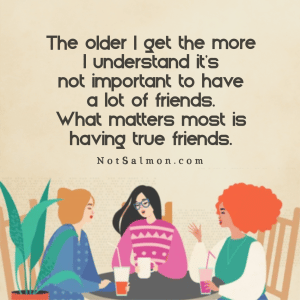 So if you’re feeling like you’re doing all the work and getting nothing in return, it’s a sign that your friend may be taking you for granted.
So if you’re feeling like you’re doing all the work and getting nothing in return, it’s a sign that your friend may be taking you for granted.
While it’s possible that your friend is shy or introverted, if you’ve been the one doing all the work for a while and haven’t seen any effort on their part, then it’s more likely a sign that they’re not as interested in spending time with you as you are with them.
So don’t waste your time on someone who doesn’t value your company.
2. Your friend drains your energy or triggers your anxieties.
Now, I’m not saying that your friend should be a ray of sunshine 24/7, but if you find that your interactions with them leave you feeling exhausted, frustrated, or anxious, it’s time to reevaluate the friendship.
- Research shows that emotional contagion is a real phenomenon, in which people’s emotions can spread to others, for better or worse (Hatfield et al., 1994).
If you find that your friend is always complaining, criticizing, or venting about their problems, and that you’re absorbing their negativity like a sponge, it’s a sign that their emotional baggage is too heavy for you to carry.
And if your friend triggers your anxieties or insecurities, by constantly pushing your buttons, mocking your weaknesses, or disrespecting your boundaries, it’s a sign that they’re not a safe or healthy person to be around.
3. Your friend is not supportive of your growth or success.
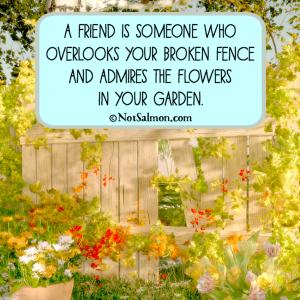 Listen, I’m all for competition and healthy rivalry, but if you find that your friend is not happy for your achievements or is actively trying to undermine them, it’s time to reassess the friendship.
Listen, I’m all for competition and healthy rivalry, but if you find that your friend is not happy for your achievements or is actively trying to undermine them, it’s time to reassess the friendship.
- According to a study published in the Journal of Social and Personal Relationships, friends who are unsupportive can cause more stress and negative emotions than having no friends at all (Kawachi et al., 1996).
- A study conducted by the University of Notre Dame found that individuals who perceive their social network as unsupportive have higher levels of anxiety and depression (Lakey & Cassady, 1990).
- Another study found that lack of social support can negatively impact physical health and increase the risk of chronic diseases (Uchino, 2006).
- Plus… research shows that social support is a key element of well-being and success, as it can enhance self-esteem, motivation, and resilience (Barrera, 1986).
If you find that your friend is always trying to one-up you, criticize your accomplishments, or sabotage your opportunities, it’s a sign that they’re not a true friend and may be threatened by your success.
4. Your friend is a Toxic Debbie Downer or a Toxic Drama Queen.
Let’s face it, life is hard enough without having a toxic friend who’s always bringing you down or stirring up trouble.
If you find that your friend is always complaining, whining, or sulking about everything and anything, or that they’re always involved in some kind of drama, gossip, or conflict, it’s time to put some distance between you.
- A study published in the Journal of Health and Social Behavior found that negative social interactions can lead to increased levels of stress and decreased levels of well-being. This was reported to be especially true if the negative interactions involve drama, gossip, or conflict, which can cause chronic stress and anxiety.
If you find that your friend’s negativity or drama is taking up too much space in your life, it’s a sign that you should give this friend some extra space – and break up with them.
5. You’re always the one apologizing.
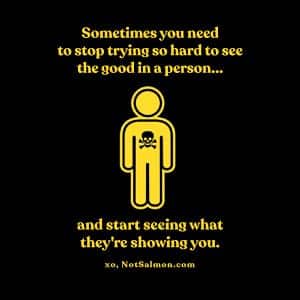 Have you ever noticed that your friend never seems to take responsibility for their mistakes or shortcomings?
Have you ever noticed that your friend never seems to take responsibility for their mistakes or shortcomings?
That they blame others, circumstances, or even you for everything that goes wrong?
If so, it’s a sign that your friend may not have a healthy sense of accountability or self-awareness.
- Research shows that apologizing is a key element of conflict resolution and forgiveness, as it can restore trust and reduce negative emotions (Mills et al., 2015).
While it’s possible that your friend is simply defensive or avoidant, if you’ve been the one apologizing for everything and haven’t seen any effort on their part to acknowledge their own faults, it may be a sign that they’re not mature or respectful enough to handle conflicts and differences in a constructive way.
So if they can never say sorry… it might be time to say goodbye.
6. Your values and goals clash too much.
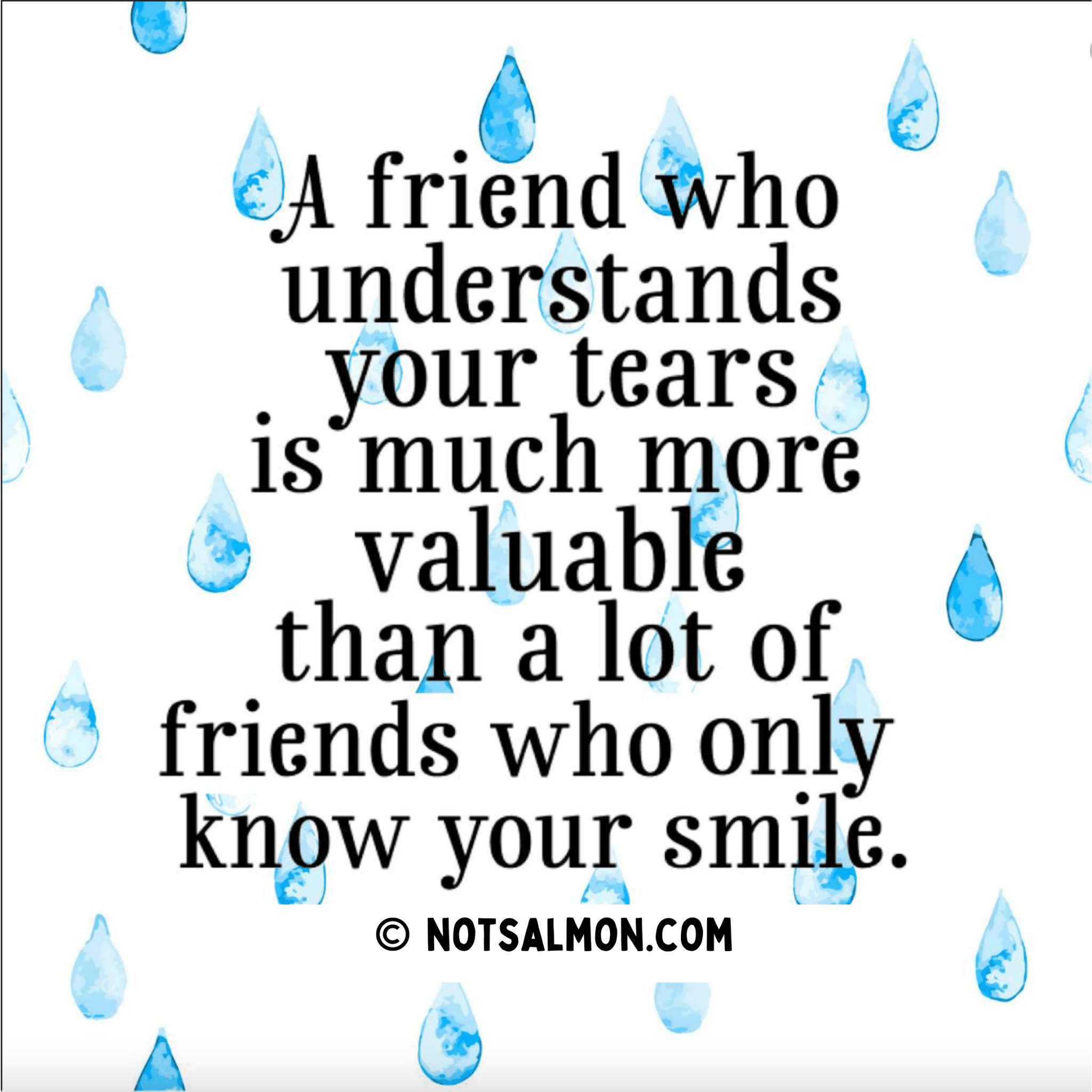 Now, don’t get me wrong. Diversity is a good thing, and it’s possible to have friends with different perspectives, cultures, and backgrounds.
Now, don’t get me wrong. Diversity is a good thing, and it’s possible to have friends with different perspectives, cultures, and backgrounds.
But if you find that your friend’s values and goals clash with yours in fundamental ways, it’s time to have a serious talk.
- A study published in the journal Social Psychology Quarterly found that individuals who feel their beliefs and values are respected and supported by others tend to have higher levels of self-esteem and life satisfaction.
- Research shows that similarity is a key factor in friendship formation, as people tend to be attracted to others who share their interests, attitudes, and beliefs (Byrne, 1971).
So, if you find that your friend is constantly belittling your choices, pressuring you to conform to their standards, or dismissing your opinions or feelings, it’s a sign that they don’t respect or value you…and that you’re headed to feeling anxious more of the time.
- A study published in the journal Psychology of Women Quarterly found that women who reported having more disagreements with their friends reported higher levels of stress and anxiety.
And if your friend’s lifestyle or choices are incompatible with yours, by involving drugs, crime, or other harmful behaviors, it’s a sign that they’re not a good friend, good influence or good role model.
And this reminds me to mention this study too…
- A study published in the journal Social Science & Medicine found that individuals who associate with people who engage in risky behaviors, such as drug use, are more likely to engage in those same behaviors themselves.
7. You’re not laughing anymore.
 Remember when you and your friend used to crack up over the dumbest things?
Remember when you and your friend used to crack up over the dumbest things?
When you could barely breathe because you were both so hilarious and irreverent?
Yeah, well, if those moments have become rare, it’s a sign that your friendship is in trouble.
- Research shows that humor is a key ingredient of close relationships, as it promotes intimacy, bonding, and positive affect (Cann et al., 2020).
If you find that you’re more bored or annoyed than amused by your friend’s jokes or stories, it may be a sign that you’re growing apart or that your friend’s sense of humor no longer matches yours. And let’s face it, life is too short to fake laugh.
8. You’re more of a therapist than a friend.
Have you noticed that your friend always comes to you with their problems, but rarely asks about yours? That they vent for hours about their ex, their boss, or their dog, but never seem to listen to your advice or feelings?
If so, congratulations, you’ve become their un-official, un-paid therapist.
- In a study published in the Journal of Social and Personal Relationships, researchers found there’s something called “emotional labor” in toxic friendships. This is when there’s far too much work required for “managing emotions” in a friendship. And when there’s too much lopsided “emotional labor” for one friend in a friendship…this can have negative consequences for their well-being. Basically, the researchers found that when one friend is consistently relying on the other to provide emotional support, it can lead to feelings of burnout, emotional exhaustion, and decreased satisfaction with the friendship.
Remember: If you feel like you’re always the giver, and never the receiver, it may be a sign that your friend is using you as an emotional dumping ground or that they are not able to reciprocate your care and empathy.
While it’s important to be there for your friends in tough times, it’s also important to set boundaries and take care of your own emotional needs.
9. Your friend is consistently unreliable.
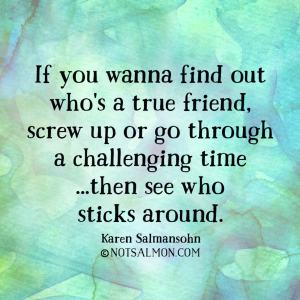 It’s one thing to have a friend who occasionally cancels plans or shows up late.
It’s one thing to have a friend who occasionally cancels plans or shows up late.
But it’s another thing entirely to have a friend who is consistently unreliable.
If your friend repeatedly flakes on you, fails to show up for important events, or constantly changes plans at the last minute, it may be a sign that they don’t value your time or your friendship.
- Research shows that reliability is a key aspect of trust and social exchange, as it can enhance predictability and cooperation (Blau, 1964).
So, if your friend consistently fails to follow through on their commitments, you should consider it a sign that they may not be reliable or trustworthy…or capable of maintaining a healthy friendship
Remember, good friends show up, great friends show up on time, and the best friends show up with pizza.
10. Your intuition or gut feeling tells you it’s time to move on.
Last but not least, sometimes you just know when a friendship has run its course. You may not have any clear reasons or evidence, but your gut feeling or intuition is telling you that it’s time to let go.
- Research shows that intuition is a valid and reliable source of decision-making, especially when it comes to complex or ambiguous situations (Dane & Pratt, 2007).
If you find that your intuition is telling you to move on, it’s a sign that your subconscious mind has picked up on subtle cues or patterns that your conscious mind may not be aware of.
10 tips to try to save a friendship… before you end it
1. Address the elephant in the room
In any relationship, it’s important to address the elephant in the room. Speak up about what’s bothering you and have an open and honest conversation with your friend. It may be uncomfortable at first, but it’s better to confront the issue than to let it fester and grow. By addressing the problem head-on, you might be able to find a solution together and strengthen your friendship in the process.
2. Speak more openly and honestly in all interactions
Remember: If you let small issues build up over time, they can become huge issues that can potentially ruin even a truly good friendship. So try to talk more openly and honestly with your friend – immediately – when something happens that bothers you. Choose your words carefully, and avoid accusations or blame. Focus on expressing your feelings and concerns in a compassionate and non-confrontational way.
3. Be open to change
Sometimes, a struggling friendship can be saved by making changes to the way you relate to each other. Be open to trying new things and finding new ways to connect, and be willing to adapt as your friendship evolves. Basically, become open to the idea that the friendship may not look the same as it did before… and be willing to embrace those changes.
4. Practice empathy
Put yourself in your friend’s shoes and try to understand their perspective. Show compassion for their struggles and challenges. If possible, explore if your empathy for their challenges can give you some wiggle room for forgiveness. Explore if there’s any compassionate reason for you to let go of your grudges or resentments …and extend grace to your friend.
5. Find common ground
If you and your friend are constantly clashing because of your differences, try to find common ground. Find activities or topics that you both enjoy and focus on those to strengthen your bond.
6. Take a brief break
If your friend is causing stress, try taking a brief break from the friendship. This doesn’t mean you have to completely cut the person out of your life, but it can give you some time to re-evaluate the situation and potentially come back to the friendship with a fresh perspective. Sometimes, a little time apart can do wonders for a struggling friendship. When you reconnect later, you might both be in a better place to enjoy your friendship.
7. Focus on the positives
It’s easy to get caught up in the negative aspects of a struggling friendship. While it’s important to address any issues in the friendship, it’s equally important to focus on the positives. Remind yourself of the reasons you became friends in the first place and the things you appreciate about the other person. Then make an effort to create more of the types of positive experiences you originally shared together.
8. Take responsibility
Be willing to take responsibility for your part in the friendship’s struggles. Acknowledge your mistakes, apologize for any hurt you may have caused, and make an effort to make things right. Explore whether you’ve been too quick to get defensive or hurt by the actions of your friend. And meditate on whether you’ve been taking things too personally. Keep in mind: Everyone has their own issues and struggles, and it’s not always about you.
9. Set healthy boundaries
If your friend’s behavior is making you uncomfortable or causing you distress, it’s essential to set boundaries. This could mean limiting your interactions with the person and being clear about your needs and expectations. Clearly communicate what you are and are not willing to tolerate in the friendship. And be consistent in enforcing those boundaries.
10. Be patient
Repairing a friendship takes time, and it’s important to be patient. Don’t expect everything to be resolved overnight. Give yourself and your friend the time and space needed to work through any issues. And remember: Progress may not always be linear. Do your best to keep the lines of communication open during this time period of trying to mend your friendship.
Conclusion: Ending Friendships & Breaking Up With Friends
Breaking up with a friend is not easy, but it’s necessary for your well-being and happiness. You need to pay attention to the signs that a friendship should end because it’s no longer serving your values, goals, or personality.
Remember: When you take action to create a more positive and fulfilling social network, you improve your mental and emotional health. Plus you find better friendship matches to last a lifetime.
Life is too short to waste it on toxic friendships. So, be brave, be honest, and be kind, and let go of the friendships that no longer bring you joy.
If you’d like additional help with toxic friendships, sign up for a free discovery session with me HERE.
Learn how to set boundaries with toxic friends
Learn more of the signs a friendship is toxic – and how to maintain boundaries and manage toxic friends – in my therapist recommended online course Manage & Avoid Drama Llamas.
P.S. Before you zip off to your next Internet pit stop, check out these 2 game changers below - that could dramatically upscale your life.
1. Check Out My Book On Enjoying A Well-Lived Life: It’s called "Your To Die For Life: How to Maximize Joy and Minimize Regret Before Your Time Runs Out." Think of it as your life’s manual to cranking up the volume on joy, meaning, and connection. Learn more here.
2. Life Review Therapy - What if you could get a clear picture of where you are versus where you want to be, and find out exactly why you’re not there yet? That’s what Life Review Therapy is all about.. If you’re serious about transforming your life, let’s talk. Learn more HERE.
Think happier. Think calmer.
Think about subscribing for free weekly tools here.
No SPAM, ever! Read the Privacy Policy for more information.
One last step!
Please go to your inbox and click the confirmation link we just emailed you so you can start to get your free weekly NotSalmon Happiness Tools! Plus, you’ll immediately receive a chunklette of Karen’s bestselling Bounce Back Book!


 Breaking up with a friend is never easy, but knowing the signs you should end friendships and break up with friends can help you be happier. I also believe you should make sure you’ve done your best to mend the friendship before you’ve ended it. So I’ve shared 10 friendship repair tips in this article too!
Breaking up with a friend is never easy, but knowing the signs you should end friendships and break up with friends can help you be happier. I also believe you should make sure you’ve done your best to mend the friendship before you’ve ended it. So I’ve shared 10 friendship repair tips in this article too! So if you’re feeling like you’re doing all the work and getting nothing in return, it’s a sign that your friend may be taking you for granted.
So if you’re feeling like you’re doing all the work and getting nothing in return, it’s a sign that your friend may be taking you for granted. Listen, I’m all for competition and healthy rivalry, but if you find that your friend is not happy for your achievements or is actively trying to undermine them, it’s time to reassess the friendship.
Listen, I’m all for competition and healthy rivalry, but if you find that your friend is not happy for your achievements or is actively trying to undermine them, it’s time to reassess the friendship. Have you ever noticed that your friend never seems to take responsibility for their mistakes or shortcomings?
Have you ever noticed that your friend never seems to take responsibility for their mistakes or shortcomings? Now, don’t get me wrong. Diversity is a good thing, and it’s possible to have friends with different perspectives, cultures, and backgrounds.
Now, don’t get me wrong. Diversity is a good thing, and it’s possible to have friends with different perspectives, cultures, and backgrounds. Remember when you and your friend used to crack up over the dumbest things?
Remember when you and your friend used to crack up over the dumbest things? It’s one thing to have a friend who occasionally cancels plans or shows up late.
It’s one thing to have a friend who occasionally cancels plans or shows up late.